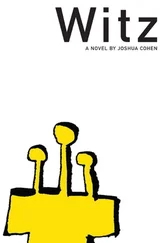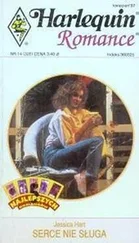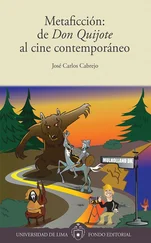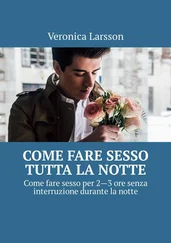Dusk was just beginning, in the bar it was almost too dark to read — anyway the napkin had too many numbers.
He might have been drunk but still hadn’t imbibed that much and said so and Publicov, offended, said, But it is only an address, maybe it will help.
Thank you, Publicov.
He thought, this book — this will be a book — is hereby respectfully dedicated to you.
He walked through the dusk to clear the head, to sober. Give himself time to decide whether to walk or be taken by what’d take him. The wind blew harshly, exhaled from the debauched cherubs’ cheeks of the arcades. Lampposts lofted lamps that were out but the posts themselves were justification enough, drastic lancing efflorescences, metal trees set starkly against the grayscale of the sky. He decided on a taxi but couldn’t find a taxi, could find no tram either, no tramstop though there were tracks over which to stumble, no buses or huffy marshrutky despite the poles that served as stops where he’d plastered over the timetables with posters of his Moc. Each cobble felt like a hill he had to ascend, a mountain, between them deep smutted river valleys filled with 50 ml nipbottles filled with the messages of wet butts. Pedestrians, mere bundles of cloths and threads and yarns, baskets with pasty arms and legs protruding and, from the tops, heads swollen like kerchiefed treats, passed him in the street, their very lives averted. Setts and pavingblocks gave way to a prospekt expansive enough for the parade of tanks and trucks in convoy, pulsing traffic away from the asbestine heart installed at the horizon — this city’s entire historical centrum, intended only for the necrophiles and thanatos tourists, giving way to asphalt, the fancy fachwerk and gingerbread facades faded, even that fairy castle smogged, the leanings of centuries collapsed into piles of wood and stone until only boxes remained.
As if cardboard boxes, crates for the packing, stacked into towers, these hundreds or thousands of modular units making of the suburbs a boundless concatervation — as if the world had surrendered its rolling fields and city streets and instead cast itself up, straight up, as if the three dimensions of our experience had been upended, to two — as if he were headed toward not an address but a setting, a set …
How to explain such a scene to Sunday brunch readers at home? How to situate you — how to acquaint you but only with words?
Your correspondent did not know, your apprentice artist had not an inkle, how to describe the towering above him. Think not of livingspace, of cozy homes in distant faubourgs and kieze, but of officeparks, think of malls. Risen tiers and superseding levels of commerce, of store. But not stores as you might be used to them.
Where offices and shops should have been were domiciles, were private apartments — though from the outside, approaching the pathwork from the windblown street, they provided anything but privacy. They were glassed, they were entirely glassed floor to ceiling and any visitor could see in. He could look in where an accountancy should be and there was a family arguing at supper. Observe where managers should reign and surveil a grandfather at stool. Hello, grandfather! How are you feeling? how commoted are your bowels this evening?
A building cubicled, celled, seen — its exterior lit from within into a screen. The lobby door was locked, a smashed metal door loosely locked. He twisted the knob and pulled, pulled. He checked the address again and the address was correct, unless a disgruntled resident had reaudited some numerals. Someone would leave, he was certain, he didn’t know why he was certain — so vitrined, everyone appeared exhausted, appeared asleep.
He waited but no one came. He leaned against the jamb and, though he didn’t know which unit he was looking for, tempted the buzzers, which were anyway unlabeled. He buzzed one and then another and yet another, but they were not buzzers. They didn’t buzz an apartment with a familiar tone so that the party buzzed would be alerted that he was outside downstairs waiting for the door to open — instead they were eavesdroppers, they were monitors. When he pressed one he heard, through the fixture’s grill, a baby’s tin crying, when he pushed a second he overheard gerocomically gluttonous breath, fingering still a third, it was ragged sex, while from others was speakered indistinct talking, murmuration and scold, snoring, a lot of snoring and even silence, but needless to say only the silence baffled — perhaps that apartment was vacant or its buzzer, broken — and he didn’t comprehend any conversation.
Moc — if she was in residence — which foursquare screen above him was her gleaming? which button would give him access to her sighs? In his hand, Publicov’s napkin was streaking, had smirched — never having noted which floor was hers, it was presently expressive of even less: just a clot of phlegm, a florid spew. He considered hurling it like a rock at a pane — then went scrounging for a more stolid embodiment under a precise hedgerow welded to the ground — but there were no rocks and there was a redundance of panes. He threw the paper and away it flew. The swingset had no swings. The slide was a ladder up. The weather was as oppressively changeless as the consecution of the development’s paths.
The door clicked and out staggered a group of intimidating children, overgrown children. Their youths were stuffed like sausages into the casings of overalls, in the fashion of gastarbeiters, their faces were slabs of borodinbread swabbed with butter, their noses whole potatoes and ears, the toothpicked rinds, their fingers livid burns as from carelessness with methpipes. They stared at him, spoke cacophonic codes and then — nudging one of their race forward, a manboy with crusty, distended lips, trollishly stunted — inquisitioned:
Does David ever make it back home —or, Ever go home do David? or, Did home ever David make go? and though through the measured, mechanical accent he understood the words because they were in his language, he didn’t know what they meant until, a breath, he realized they referred not to him, rather to an American television show he’d never watched but had heard of — a hysterical serial, he thought, impossible not to have heard of (though it’d been over for a season, its antics supplanted), as he told this insistent, scarcarved, tough as warts horde:
Yes, David goes back home to marry Samara from college — though his father dies or is kidnapped for ransom, but only after his mother’s investment firm fails or is arsoned, I hesitate to say which, and no — he said in answer to the youngest trollnik stroking his leg — no, I don’t know what happened to your sister!
They lured him into the tower talking as if talk would be enough to resist them — them grasping at every scrap, at jeanpocket and jacketflap, at the frayed bills filched from his pockets and at coins — down a hallway suffused with noxious stench: fuming nettles, as if in the production of a remedy for this hallucination in progress.
The back of the tower was not, like its frontage, glassed, but concrete poured floors above a courtyard. Only the front’s sheer veneer was new.
It was a courtyard strung across with links for laundry — light frilly cirri of negligee and peignoir, lowhanging nimbi of thong and garter — filled with receptacles and trash. And he was tossed like a bag of trash himself — thrown atop the bags, rolled over their blackly bodied putrescence, needle shards of mirror, a slough of diapered spoiled lard — tumbling into another hall, to his knees at the threshold of an opposite tower.
The boys emerged from behind — having slipped past the dumpsters at the yard’s periphery — dragged him to his feet, to an entryway as dark as fur.
Читать дальше












